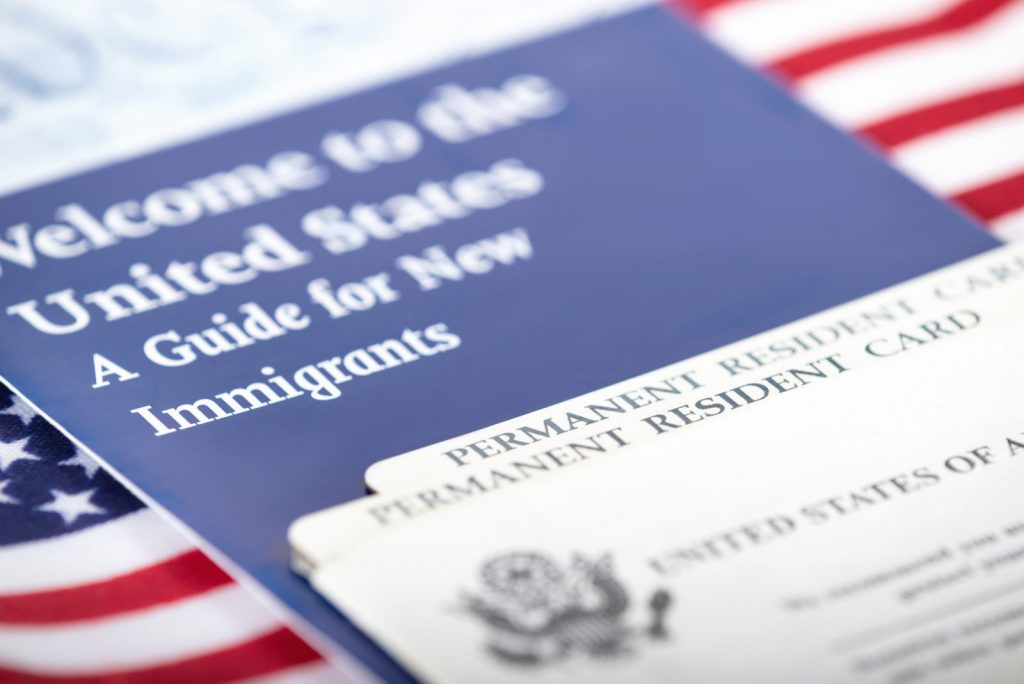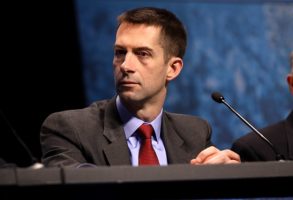
Published January 9, 2018
This afternoon, President Trump hosted a bipartisan group of members of Congress at the White House for a discussion of immigration policy. The goal was to advance toward some kind of deal regarding the status of people who were brought to America illegally by their parents and later given protection by President Obama’s DACA program—which the Trump administration is in the process of terminating. As often happens, reporters and television cameras were allowed into the Cabinet Room at the beginning of the meeting. But as pretty much never happens, they were then allowed to remain in the room for just under an hour while the meeting went on.
The president made the sort of statements presidents usually make at the start of such meetings. Then he invited the senior Democrats and Republicans in the room to say something. And then he just started having people talk back and forth. Everyone around him seemed to be waiting for the press to leave so the real meeting could start, but after a while they realized it wasn’t going to happen, and they launched into something like a real meeting with cameras in the room.
The result was pretty extraordinary and is well worth watching if you like politics and policy. It suggested, to this viewer at least, something about both the strengths and the weaknesses of Trump’s very unusual way of being president.
On the one hand, the meeting captured something of the feeling of a high-level substantive discussion among elected officials—which is a feeling very hard to convey to people who haven’t experienced it. It showed the way in which the range of available options in a discussion among decisionmakers is often much greater than it seems when you only observe the broader debate at a distance. From the outside, the parties to any policy debate seem clearly defined and their positions are coherently arrayed against each other. From the inside, the debate is a set of conversations, and the boundaries are much more fluid and less conceptually coherent. This creates the possibility of breakthroughs in the course of concrete discussion that can’t be had in the abstract. It is a case for deliberation.
But deliberation is, of course, by its very nature generally private. Institutions require inner lives, and deliberation in politics is usually a function of the inner lives of our governing institutions. It has therefore grown vanishingly rare as cameras have been shrinking those inner lives. Yet here, at least at first, we seemed to be witnesses to a sort of deliberative conversation on camera.
That this happened may be a testament to the peculiar logic of reality television. If you watch any reality television (and please don’t watch too much), you have to wonder how people could possibly behave as they do while the cameras are rolling. Is it pure show? Are they somehow made oblivious to the cameras and behaving like themselves? The answer often seems to involve a particularly charismatic person who has an unusual attitude about the cameras—a person who is behaving like himself or herself before the cameras, knowingly acting and yet unabashed, and manages to cause everyone else to forget it’s a show and behave like themselves too. This is a person for whom reality television is reality. President Trump is such a person, for good and bad, and we saw a little of that effect in this meeting, and of how it shapes the behavior of other people in the room.
My sense is that what we saw before the cameras here is pretty much how this meeting would have gone without cameras. But that is not to say that it was therefore productive. Donald Trump is always performing, or rather there practically is no Donald Trump beyond the performer, and today’s meeting showed off the downside of that as well as the upside. It revealed some of the challenges this president poses to the people around him, even when he is at his best—which isn’t often.
The subject at issue in this meeting was one that President Trump knows better than most other subjects. He spoke about it relatively fluently, even if not always accurately, and he had a good sense of what the core questions were. I can assure you that if this meeting had been about health care, say, it would not have looked like that. And yet, even on an issue he knows pretty well, the president turns out to be exceptionally pliable.
He several times said one thing and then its opposite. He seemed open to comprehensive immigration reform while not really sharing the definition of the term held in common by everyone else in the room. At one point he seemed to agree with Senator Dianne Feinstein that a clean DACA bill would be a good idea, only to be pulled back by Rep. Kevin McCarthy who reminded him that “clean” would mean DACA without border protection measures.
This malleability on his part in turn defined everyone else’s behavior around Trump. Every single other person in that room was there to manipulate the president, and seemed to think they could. The sum total of their respect for him was zero. Whether by obsequiously singing his praises to his face or by telling him he had agreed to something or by asking him to opine grandly on the most innocuous possible formulation of their own position, each of the members of Congress who spoke to him was hoping the president would take their side because they assumed he had no side of his own. This now and then created the sense that maybe a breakthrough could really come. But as becomes evident by the end of this meeting, what this malleability actually means is that you never know where you stand and nothing the president says matters all that much.
Near the end, as Trump finally began to talk about sending the press out of the room, he actually made his malleability explicit. Throughout the meeting, Republicans looking for some leverage for border security measures tried to get the president to draw some red lines they could point to, and insisted they couldn’t pass anything he would not approve of. They were practically begging him to say he had some demands. But at the end, asked by a reporter if something in the course of the discussion had changed his position on anything, the president said:
My positions are going to be what the people in this room come up with. I am very much reliant on the people in this room. I know most of the people on both sides, have a lot of respect for the people on both sides. And my, and what I approve is going to be very much reliant on what the people in this room come to me with. I have great confidence in the people. If they come to me with things that I’m not in love with, I’m gonna do it, because I respect them.
Of course, that position too could change on a whim, and in the wake of the meeting various White House officials were already working to regain some leverage by suggesting there actually were some imaginable deals the president would veto. Anything is possible.
And here we have a sense of the weaknesses of this reality-television presidency. In a normal meeting among policymakers, the kind of conversation we saw would get down to some brass tacks after a bit, and the ideas thrown around would begin to be transformed into specifics. But with a president who is only performing, that moment never came, and at the end of an hour’s discussion, the president reminded everyone that none of it mattered.
The congressional participants in this discussion certainly seemed taken aback by it, even a little stunned at first. Senator Lindsey Graham described the meeting to a reporter as “the most fascinating meeting I’ve been involved with in twenty plus years in politics.” And yet, when they step back from what happened in front of the cameras in this very unusual discussion and take account of where things stand, I think they’ll conclude that absolutely no progress whatsoever was made in any direction.
Quite a spectacle, but not much more. The reality-show character of the Trump presidency makes it hard to know if there is too much going on or too little.
Yuval Levin is the Hertog Fellow at the Ethics and Public Policy Center.







